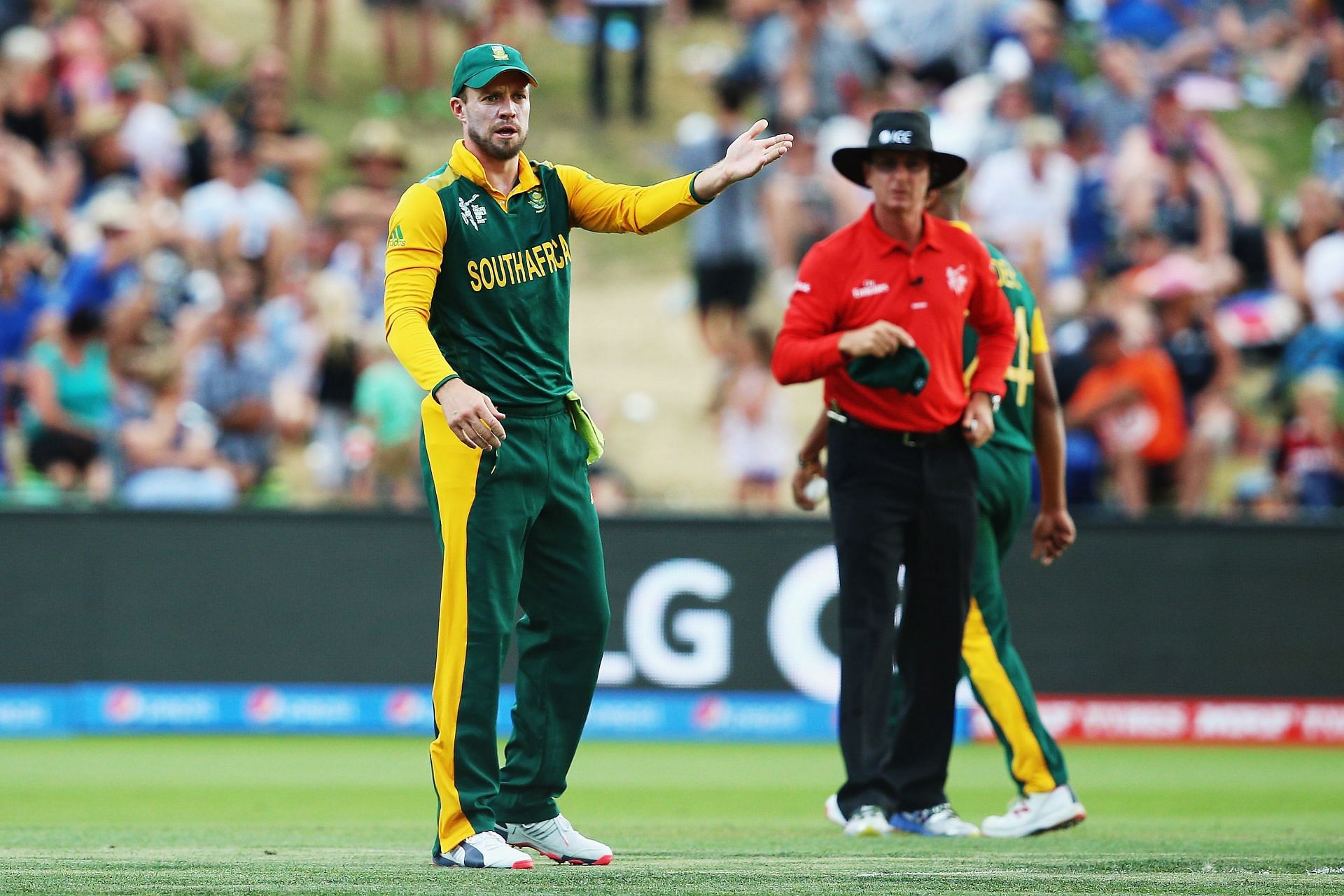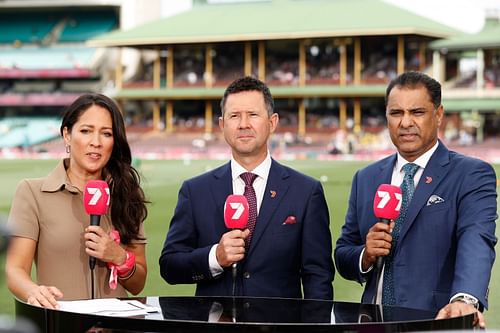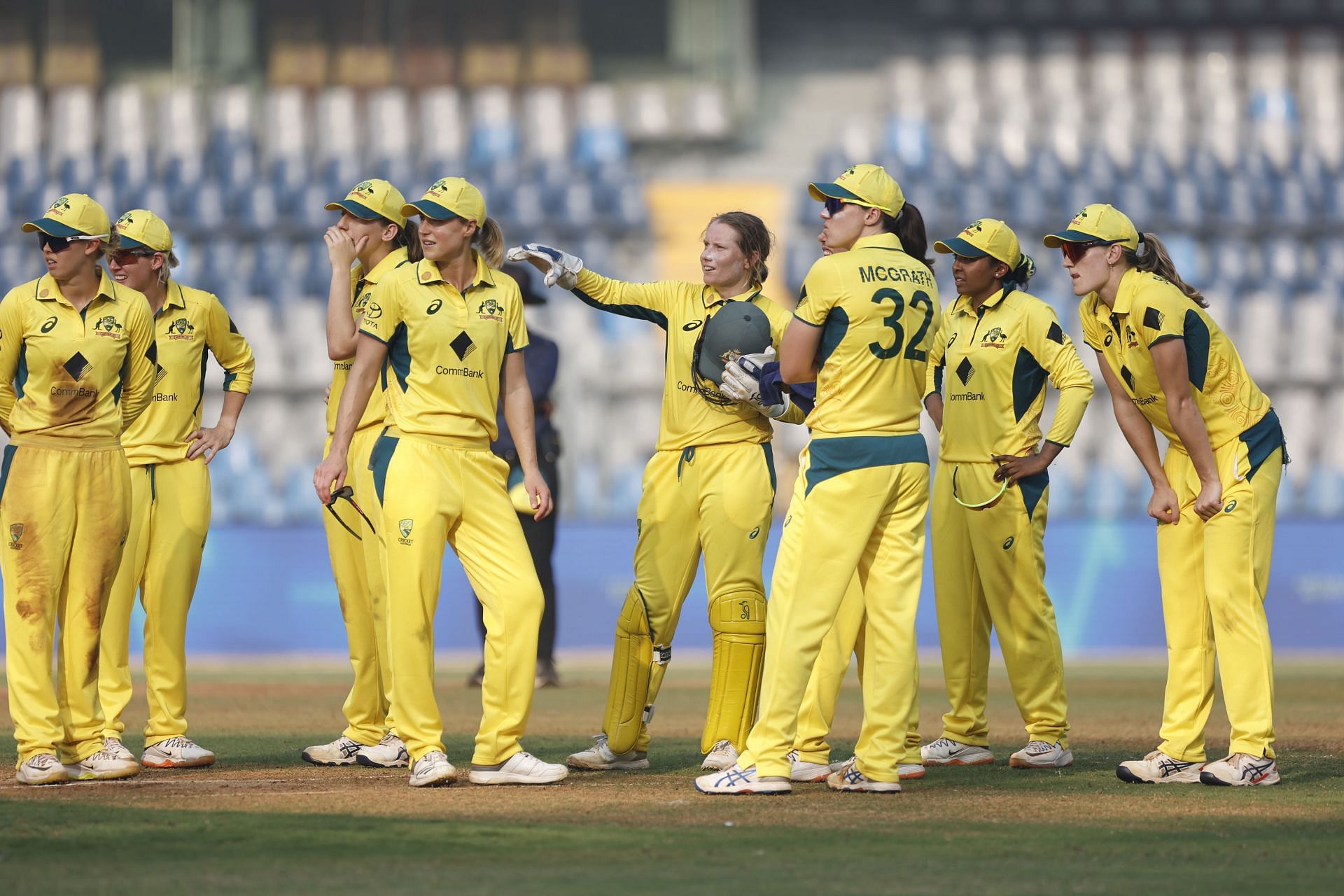
3 reasons why AB de Villiers' idea of getting commentators to judge DRS calls doesn't make sense
Former South African captain AB de Villiers has made a rather intriguing suggestion, saying that the commentators should vote to decide DRS calls instead of a third umpire doing it. According to the Proteas legend, doing so would make the game entertaining to watch.
De Villiers' out-of-the-box suggestion came in reply to a social media post by former England captain Kevin Pietersen. The latter stated that a rule wherein sixes over 100 meters in distance will be given as 12 runs could be on its way. While sharing his thoughts on the same, he also chipped in with his idea on DRS calls.
"Last idea. Have the three on-duty commentators make DRS/close-call decisions and talk the public through it. Quick vote between the 3 if it’s out or not out, and then make the decision. Would be very entertaining with close calls (like whether the ball bounced with a catch or not)," de Villiers said.
"Or whether the snicko spikes happened at the time the ball actually passed the bat or not. 3 is better than 1,” he added.
In the wake of De Villiers’ suggestion on player reviews, we look at three reasons why the idea does not make any sense.
#1 Commentators do not have the skill sets to replace umpires

Umpiring is a specialized job, just like commentating. Both are extremely serious professions that cannot be tampered with. Even with all the technology available, and the experience and expertise, third umpires often find it difficult to make the correct decision over a DRS, be it a caught behind, leg before, or any other form of dismissal.
There are so many factors that need to be taken into consideration while giving a final decision. Irrespective of the amount of technology at their disposal, the TV umpires still have a tough job to do, which is perhaps even more challenging than the role of the on-field umpires, who refer almost every decision upstairs where there is even an iota of doubt.
Coming back to DRS reviews, umpires need to check every minute detail using multiple technology available before arriving at a final decision, which itself often leads to a huge debate among fans and cricket experts.
Unless commentators are trained umpires, which is definitely not the case with most, there is no way they can be well-equipped to take a call on DRS, irrespective of how much technology is out there to aid their cause.
#2 De Villiers’ suggestion on DRS if implemented can become a bit of a mockery
In his reply to Pietersen, ABD suggested that three non-duty commentators could make DRS/close-call decisions and talk the public through them. Then, there can be a quick vote to decide if it’s out or not out and a final decision can be arrived at.
On paper, the idea looks exciting, but its implementation is completely non-practical. As mentioned above, umpiring, whether on the field or off it [TV umpire], is an extremely serious business.
Expecting a bunch of commentators to decide whether or not a batter is ‘out’ or ‘not out’ is pretty much making a mockery of the game and the profession of umpiring as well as commentating.
Such a rule, thus, definitely cannot be allowed to creep into the game of cricket, which is, at the end of the day, a serious sport.
#3 There are better ways to make the game more entertaining

While making his rather bizarre suggestions on DRS calls being taken by commentators during his online interaction with Pietersen, De Villiers stated that doing so would make the game very interesting, especially when it comes to close calls like whether the ball bounced with a catch or not.
We cannot only assume that Proteas legend made the remark in a light-hearted tone, for deciding whether a catch has been taken cleanly or not cannot be equated with entertainment.
Of course, there is plenty of excitement and anxiousness among fans and experts when a close call is being reviewed. Expecting commentators to give their verdict on it, though, does not sound right at all.
It defeats the very basic purpose of having DRS in place - to try and minimize wrong decisions to the maximum extent possible.